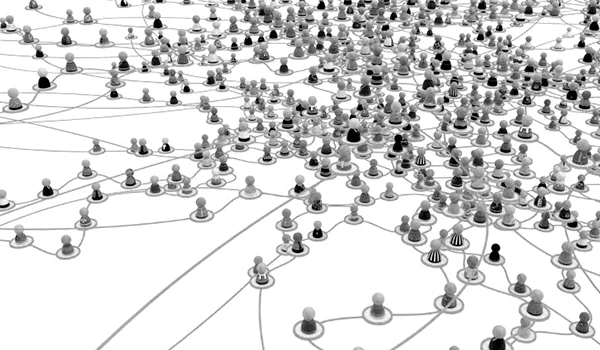Hard work and talent have always been considered as the two pillars of one’s success. But a lot many people are both talented and are tremendously hard-working, but does this guarantee success to all the people of the lot? Unfortunately, the answer is “No”. One of the most important determinants of their success is also, whether they have a strong network to leverage when the right time comes.
According to Robert Putnam, social capital refers to “connections among individuals –social networks and the norms of reciprocity and trustworthiness that arise from them.”
Now, it is easy to percolate this understanding in our daily lives; how your social capital, grants you the access and the access, in turn, grants you with more opportunities.
Your network includes your friends, work colleagues, friends of friends, business connections. Building your social capital is about building long term relationship with these connections.
Engaging with your network not only keeps you updated of what’s going around but also helps in meaningful knowledge sharing. You get access to new ideas and valuable information that can help you in your professional life and career building. A strong network plays a key role in your business expansion too; your connections can provide you the right resources or can also put you in touch with the right investors. Higher social capital increases your visibility and can give you access to new job opportunities as well. Networking thus not only helps in building long term personal relationships but helps in your professional and career advancement as well.
Networking is a long term play. The benefits of networking may or may not be realized immediately, but as I came across a perfect analogy “Networks are like any good investment portfolio. The great ones can have an extremely high ROI (return on investment)”.
The big question is how to build your social capital? To keep on adding random contacts on social media is certainly not the answer. To build a strong network, it is very important to have an understanding of the two dimensions of social capital, in network theory we call them: structural embeddedness and relational embeddedness. Structural embeddedness defines the configuration of your network, number of connections, composition, etc and while relational embeddedness determines the quality of those connections. Having more connections is important but the quality of relationship you share with each of these connections is what matters more and determines the real value of your social capital.
Though, having fewer strong ties is always better than having a higher number of weak ties; as it is unlikely that you would be able to leverage your weak ties effectively in the time of need. But it is quite natural to have a mix of strong and weak ties in your network and in a way; both strong and weak ties play a very crucial role in building a valuable network.
You may wonder how a weak tie may be of any value to you? Weak ties indeed play a very important “bridging” role in building a strong diverse network. These weak ties are crucial in binding two different homogenous groups with high bonding capital. In simple words they help in creating new bonds, bringing the different circles of network into contact with each other and hence forming a much bigger and diverse network. But again, your quality of relationship with these weak ties would eventually determine the strength of your overall network. Hence, always focus on building a network of higher relational quality which can be a mix of both strong and weak ties. Pay attention and deeply listen while you interact with others. This is the first step towards building a meaningful relationship. Look for opportunities to create value for others. When you are supportive and helpful to others, people feel the need to stay connected to you. Don’t always help others with the intention to get something in return. Be genuine in helping others, be open and approachable. Along with building your new connections, focus equally on rebuilding your old connections. You would be surprised to realize how valuable your old connections could prove to be. Another very important aspect is the composition of your network. Be cognizant, if your network is dominant of people with very similar profiles or if your network is diverse with people from different fields and domains. Connections with people from different industries and domains will not only expand your reach but also multifold the number of opportunities coming your way from multiple directions.
A diverse, strong network is your biggest asset, which can give you returns for the lifetime. Meet new people, deepen your relationship with your old connections, and spend time with people of different educational backgrounds and industries.
Invest in others; invest in building a strong network because your network is the hidden factor that can help you be successful.
